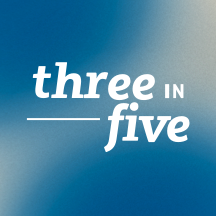Explore institutional insights

Client sign in
- Please enter a search term.
-
Insights
Stay up to date

Market update

Investor insights
-
Investments
Stay up to date

Market update

Investor insights
-
About us
Stay up to date
Learn more about our investment group

Market update

Investor insights
- Please enter a search term.
- Investments
-
Insights
- Back
- Insights
- Insights Overview
-
All insights
- Back
- All insights Overview
- Q3 2021: Investment grade private credit update
- Evaluating private credit opportunities in today’s market
- 2022 BentallGreenOak Perspective report
- The case for real estate
- The Impact of Rising Rates – LDI Client Update
- Global Investment Outlook 2022
- Investing in an inflationary environment
- Q2 2022: Investment grade private credit update
- Regulatory Update - Schedule D Part 1 (Bonds)
- Q3 2022 Investment Grade Private Credit Market Update
- Crescent Capital Markets Q3 2022 Update
- Multi-Asset Credit Strategy: October 2022 Update
- Investing into the rate-hiking cycle
- Multi-Asset Credit Strategy: November 2022 Update
- Multi-Asset Credit Strategy: December 2022 Update
- 2023 Global Investment Outlook
- Q4 2022: Investment Grade Private Credit update
- Multi-Asset Credit Strategy: January 2023 Update
- Fireside chat: Seize new opportunities in bonds and structured credit
- Q1 2023: Investment Grade Private Credit update
- Q1 2023: Crescent Capital group market commentary
- Crescent experts Q&A: How innovation will drive private debt forward
- June 2023: Private Credit Insights
- The BMA’s upcoming regulatory review
- The Elusive Recession - Commentary by Crescent Capital Markets
- 2023 Mid-year Global Investment Outlook
- Commercial mortgage-backed securities are in the spotlight again, but this isn't 2008
- Q2 2023: Investment Grade Private Credit update
- Cautious optimism
- Q3 2023: Investment Grade Private Credit update
- Narrowly syndicated credit: yield opportunities in an underexplored niche
- Don't rest yet, the recession will rear its head in 2024. Here's how to protect your bond portfolios
- 2024 Global Investment Outlook
- Q4 2023: Investment Grade Private Credit update
- Insurance solutions
- Retirement plan solutions
- Sustainable Investing
- Market updates
-
Three in Five Podcast
- Back
- Three in Five Podcast Overview
- Mark Attanasio on the changing landscape of private credit
- James Slotnick on the U.S. midterm elections
- James Slotnick on the 2022 U.S. midterm elections
- Andrew and John on commonalities in investment grade private credit and narrowly syndicated bank loans
- Laila on operational considerations for investment grade private credit investors
- Cliff Corso on opportunity in the high net worth market
- Kate McKeon on sustainable investing and Net Zero
- Ben Greene on education, allyship, and the trans experience
- Melissa on the importance of the client experience
- Cristina Medina on Invest in Girls
- Steve on the Canadian P&C insurance market
- Rich and Peter on growing stress in the banking sector
- Doug on the debt ceiling
- Jim Blakemore on real estate debt
- Chris and Tim on the Special Financial Assistance Program for Taft Hartley plans
- Veronique on the evolution of LDI investing in Canada
- Chris Wright on the future of private credit
- Beth Brown on workplace burnout
- D.J. on the CMBS market
- Josh Davis on inner mastery and effective leadership
- James Slotnick on the politics of raising the U.S. debt ceiling
- Kevin Quinlan on climate change as a material investment risk
- Steve Peacher on the 10-year anniversary of SLC Management
- David Hamlin on fundamental credit research
- Michael Schnitman on alternatives in the high net worth space
- Steve Peacher reflects on challenges and milestones in 2023
- Subscribe
- About us
- Careers
- Contact us
- Newsroom
- Thank you
- U.S. | EN

Welcome to SLC Management site for institutional investors
Before you proceed, please select your location
Episode 43
MARCH 23, 2022
Eugene Lundrigan on Progressive Aboriginal Relations
Eugene Lundrigan, president of SLC Management in Canada, discusses the firms commitment to the Progressive Aboriginal Relations certification program, and what it means to him professionally and personally.
Steve Peacher: Hi everybody it's Steve Peacher, thanks for listening to this episode of “Three in Five,” and today I’m with Eugene Lundrigan who's President of SLC Canada, so Eugene, thank you for taking a couple of minutes.
Eugene Lundrigan (He/Him): Thanks, Steve.
Steve Peacher: Today we want to talk about something that’s actually really important to us, it’s really important in Canada, I think increasingly now corporate entities around the world are expected to take, to be active, socially active when it comes to social justice and other causes. And we're seeing that everywhere, we're seeing it in Canada, we're seeing it in the U.S., and one of the big movements in Canada relates to indigenous peoples and aboriginal relations and there's an organized program around that and that's what we're going to talk about today, and Eugene’s involved in that from Sun Life’s perspective and SLC’s perspective. So, Eugene we want to talk about this “Progressive Aboriginal Relations,” PAR certification. So, let's talk, if you just explain to the audience what is that?
Eugene Lundrigan (He/Him): Great thanks Steve, and thanks for having me on today. So, first PAR certification, I mean fundamentally it's about you know crystallizing our commitment to pursuing partnerships with indigenous communities. It's offered by the Canadian Council for Aboriginal Business and really centers on four key performance drivers: leadership action, employment, business development and community. Some of the actions that involved in it include thing doing things like providing cultural awareness to our employees, building our knowledge of indigenous history, including colonization. But really it goes far beyond that it's really about being good community partner, ensuring we are hiring and developing indigenous talent, working with indigenous’ own communities and really beyond that. It takes, it takes up to seven years to be fully certified, just recently started this journey in 2021 and we are very committed to seeing it through.
Steve Peacher: So, let me, let me just ask a kind of a provocative question then, if you look at SLC Management, an asset management entity, operates in the financial markets and the private markets, why is this initiative important to SLC Management and firms like ours?
Eugene Lundrigan (He/Him): Yea, Steve we've been very vocal about our intentions to foster a diverse, equitable and inclusiveness in our in our work in our workplace, I think we believe that that just leads to better outcomes for us, for our clients, for employees, communities where we live and work. And so, under the DE&I umbrella, one of the things that we've chosen to focus on is reconciliation with indigenous communities. Two key steps on that journey are learning about our shared history. But also working towards building a more prosperous community between indigenous and non-indigenous people. Really in Canada, a watershed moment if I can put it that way in, indigenous relations was the publishing in 2015 of 94, 94 calls to action by a truth and reconciliation commission. Through our PAR certification process, we're focusing on call-to-action number 92, which is business and reconciliation. And under that umbrella, we're going to be focused on things like ensuring that we're providing you know meaningful consultation and building respectful relationships before proceeding with economic development projects, that we're providing access to jobs and training and education in the corporate sector, and helping indigenous communities get long term benefits from economic development projects and providing education and training for our staff in areas like indigenous history and culture.
Steve Peacher: You mentioned that this, to get fully certified can take up to seven years so there's a lot of work that goes into this and obviously you've gotten very involved from an SLC perspective. So, what's driving that? I guess if you put two hats on there's the President of SLC Canada hat, there's your own personal hat. You know you've been wanting to take this on – what's driving?
Eugene Lundrigan (He/Him): You know Steve for my whole life frankly, you know I sat back and hear lots of reports about the challenges with indigenous communities in areas like the lack of clean drinking water, poor health care, poor access to education, high suicide rates and I think this was hit home even more so for me during the pandemic, as probably many other Canadians, and we heard all the announcements about your residential schools and the tragedies that have happened at them. So, for me, it just felt like this was a time to act, and I was trying to find a place where I could make a tangible difference. You know where I’ve been focusing a lot of my intention, at least initially, has been around education. Tried to learn more about our indigenous communities, you know read some books on residential schools, residential school survivors. I’ve learned more about the Indian Act and the injustices built into it. I’ve listened to lots of podcasts. But honestly, I’ve still got a long ways to go and I certainly encourage anybody who's listening to this podcast to spend a little bit of time learning about indigenous history and on colonization in Canada. And I felt like a really strong second step was to lead the PAR initiative for SLC Management in partnership with Sun Life. One of the things that I’m personally passionate about is youth and mentorship and one of my hopes is that, through participation in PAR I’ll have some opportunity to work directly with some indigenous communities.
Steve Peacher: That's fantastic. Eugene, let me ask, I like to end with one personal question. What actually it does relate to this whole topic and it relates to the band The Tragically Hip. I should not be talking about anything with the word ‘hip’ in it, but, but the lead singer Gord Downie was, I think, well known for being at the forefront of reconciliation with indigenous communities and I don't know what the story is, but I understand that you've got a story from the early days of The Tragically Hip, so you can relay it to our audience.
Eugene Lundrigan (He/Him): Absolutely, so Steve in my third-year of university going back a long time now, I was leading a social community that was looking to bring a band in to my residence for a fundraiser. And one of my floormates was from Kingston, Ontario, where The Tragically Hip is from, and he said that some of his friends just formed a band called The Tragically Hip. And he said that they would play our fundraiser in return for us paying for their equipment rental and a small nominal fee. And I’d say in one of my fits of lesser judgment I deemed that that wasn't a fair cost for them to do that and I and I turned down that offer, and I can honestly say in retrospect, not my best decision. Luckily for the band, though they seem to bounced back from that early, uh…
Steve Peacher: The early rejection?
Eugene Lundrigan (He/Him): The early rejection. Based on a quick Wikipedia search, they've sold 6 million albums in Canada alone, they've won 14 Juno awards and they've been on a commemorative stamp, so they have done okay after that start. And certainly, while I’m not proud of that decision, you know I really hope that I can do some good work in this area, frankly, help honor Gord Downie’s legacy. I look forward to helping do my part around indigenous reconciliation in Canada.
Steve Peacher: Well, at least you got a good story out of it, it would have been a better story if you'd actually brought them in to play but it’s a good story, nonetheless. Well, listen thanks for talking about this, it’s a really important initiative it's going to be an important initiative for a long time as we move toward this certification. And so, you know, thanks for spending some time today on it and thanks everyone for listening, I hope you got a lot out of that. Thank you.
Eugene Lundrigan (He/Him): Great, thanks, Steve.
This podcast is intended for institutional investors. The information in this podcast is not intended to provide specific financial, tax, investment, insurance, legal or accounting advice and should not be relied upon and does not constitute a specific offer to buy and/or sell securities, insurance or investment services. Investors should consult with their professional advisors before acting upon any information contained in this podcast. This podcast may present materials or statements which reflect expectations or forecasts of future events. Such forward-looking statements are speculative in nature and may be subject to risks, uncertainties and assumptions and actual results which could differ significantly from the statements. As such, do not place undue reliance upon such forward-looking statements. All opinions and commentary are subject to change without notice and are provided in good faith without legal responsibility.



